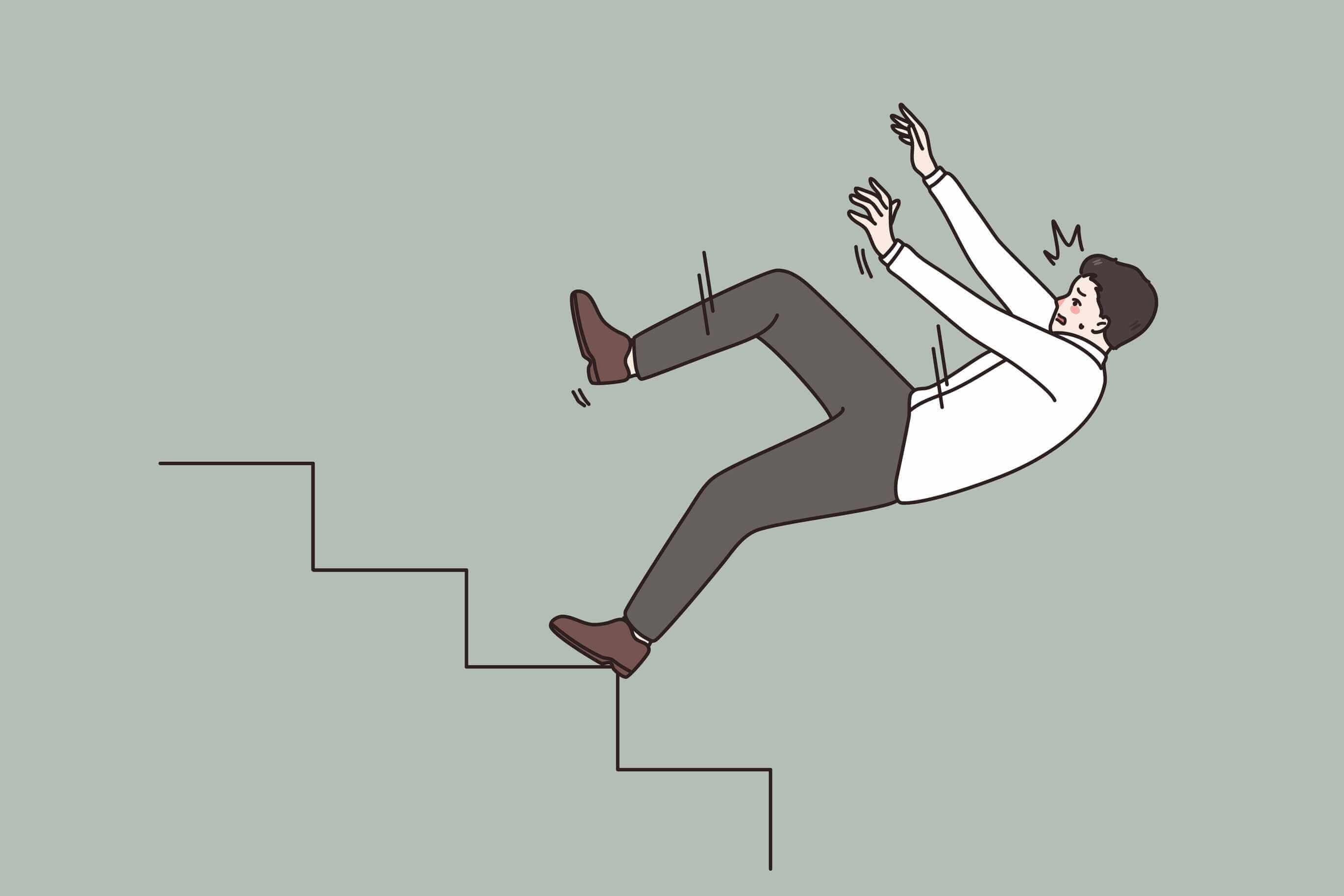5 Damaging Effects Of Drinking Alcohol On Older Adults

5 Damaging Effects of Drinking Alcohol on Older Adults
In generations past, young people were traditionally associated with hard-partying lifestyles. But when it comes to drinking alcohol, it’s the baby boomer generation (born 1946-1964) whose consumption may pose the biggest problem in years to come.
After all, the combination of a large aging population and their reportedly increasing alcohol use could take a serious toll. It can affect everything from our nation’s healthcare system to family members and caregivers. And for the older adults themselves, this mixture can turn destructive or even deadly.
IS DRINKING INCREASING AMONG OLDER ADULTS?
As Gen Z increasingly says no to alcohol consumption or joins the sober curious movement, adults 65 and older may be moving in the opposite direction. Baby boomers are showing rising levels of both alcohol consumption and alcohol use disorder (AUD), according to a 2023 article published in the medical journal Alcohol.
American Addiction Centers confirms that alcohol use among adults over 65—including problematic drinking behaviors—is on the rise. Here are some stats the organization shares:
- Alcohol is the #1 most used substance among adults who are 65 and older.
- Among the many older adults who fit the criteria for alcohol use disorder, an estimated one-third of them developed the problem later in life.
- Binge drinking may be on the rise among older adults. In 2021, the Substance Abuse and Mental Health Services Administration (SAMHSA) estimated that more than 11% of 65-and-older U.S. adults had at least one binge drinking episode within the previous month.
5 REASONS WHY AGING AND ALCOHOL DON’T MIX
While alcohol is a toxic substance at any age, drinking can lead to more dangerous effects among the over-65 population. Let’s explore the numerous factors that make alcohol consumption especially problematic for older adults.
Alcohol accelerates age-related cognitive decline.
Both aging and alcohol affect all systems of the body, and the human brain is no exception. Alcohol abuse has been associated with brain damage, especially in brain regions such as the prefrontal cortex (PFC) and hippocampus.
Because the PFC is involved with decision-making and the hippocampus impacts memory and mood, alcohol use may ultimately promote more alcohol use. Less impulse control combined with low moods makes it easier to get caught in a cycle that leads to abuse and addiction.
In addition, heavy alcohol use lowers blood flow to the brain and therefore has been linked to lower neurogenesis, or the generation of new brain cells. Research has shown that drinking even “moderate” amounts of alcohol (1-7 drinks per week) is associated with lower total brain volume, with heavier use leading to greater shrinkage.
It’s no surprise that, according to one study, moderate to heavy drinkers have a 57% higher risk of dementia than non-drinkers and light drinkers. And alcohol abuse has been determined as a driver of accelerated brain aging.
The process of aging, on the other hand, is commonly accompanied by symptoms of cognitive decline. Adding ongoing alcohol use to the brain’s normal aging process can be devastating.
Alcohol destroys sleep.
Many people experience changes in their slumber as they age, such as interrupted sleep and reduced quality or quantity of sleep. The Sleep Foundation points to various factors behind these disruptions, including:
- Changing circadian rhythms
- Physical or mental health conditions
- Changes in hormone production, including melatonin and cortisol
- Medication side effects
- Stress and anxiety
- Less exposure to daylight
- Lifestyle changes (such as less-structured sleep schedules)
As a notorious sleep destroyer, alcohol only worsens these issues. Drinking booze before bed is linked to dysfunctional sleep patterns, lower-quality sleep due to REM sleep disruptions, and even snoring and sleep apnea. Furthermore, sleep issues like insomnia can wreak havoc on both cognitive performance and mental health.
Alcohol increases the risk of injury and/or death in the elderly.
As reflexes and muscle mass decline and other health issues may impede movement, the elderly are at high risk for falls. The National Institute on Aging (NIA) reports that more than one-quarter of people ages 65 or older fall each year, and their risk only rises with age.
Falls must be taken more seriously in the elderly, because they can lead to broken bones, hospital visits, disability, and even death. But anyone who’s taken a drink knows that alcohol interferes with major functions like coordination, stability, balance, and judgment. These all increase fall risk.
In addition, one study found that those who consumed alcohol were more likely to sustain a head injury during a fall than those who had not drank. The alcohol users were also at risk for more severe injuries, with more alcohol consumption associated with greater severity.
Falls are just one major concern when drinking. The risk of other (and potentially deadly) injuries also increases, such as those caused by car accidents, fires, domestic violence, drowning, or hypothermia.
Alcohol boosts risk for chronic diseases.
A 2023 review in Molecular Metabolism noted that “evidence suggests a bidirectional and cyclical relationship between chronic inflammation and the development of age-related conditions” like cardiovascular diseases, neurodegeneration, and general frailty.
Indeed, inflammation has been linked to everything from memory loss and mental health issues to liver disease and arthritis. We also know that drinking alcohol creates inflammation in the body. And the development of chronic diseases is a common concern among older adults.
Experts have established a clear link between alcohol and cancer, for example. According to the World Health Organization (WHO), alcohol consumption was responsible for almost 4% of cancers diagnosed worldwide in 2020. And, in the United States alone, alcohol is linked to an estimated 75,000 cancer cases and 19,000 cancer deaths each year.
The WHO adds that, in 2019, an estimated 474,000 deaths from cardiovascular diseases were caused by drinking alcohol. Alcohol is also associated with greater risk of liver diseases, heart diseases, and mental health conditions, including depression and anxiety.
Alcohol can interact poorly, even fatally, with medications.
According to a report by the NIA called Facts About Aging and Alcohol, older adults are at high risk for adverse reactions when mixing alcohol and medications. That’s because they’re more likely to have health issues that require medication. They may also be more forgetful about what they’ve taken or how much they’ve had to drink.
The NIA warns that all kinds of medicines (prescriptions, over-the-counter drugs, and even herbal ingredients) can lead to dangerous side effects when mixed with drinking.
For example, aspirin and alcohol combined increase the risk of internal bleeding. Taking cold and allergy medicines when drinking can cause excessive drowsiness. Acetominophen and alcohol can damage the liver. In some cases, mixing booze with sleeping pills, pain medication, or anxiety pills can lead to death. And consuming alcoholic drinks while taking antidepressant medications can increase suicide risk.
Keep in mind that some medicines themselves, including many over-the-counter cough syrups, contain high concentrations of alcohol. These can further increase the impact of other alcoholic drinks consumed.
ALCOHOL AFFECTS OLDER ADULTS DIFFERENTLY
Many people in the baby boomer generation grew up believing that drinking is a normal, acceptable, and even a healthy and necessary part of life. Today, thanks to further research on the myriad damaging effects of alcohol, we know these attitudes must change.
On top of all the potential dangers listed above, alcohol is metabolized differently among over-65 populations. They may find that the effects of drinking increase as they get older, or their tolerance lowers. This may be particularly dangerous for older women, since females—at any age—are biologically affected by alcohol differently than men.
The bottom line is that drinking alcohol negatively impacts both physical and mental health. Unfortunately, mental and physical health struggles (as well as facing the challenges that accompany aging) can lead to increased alcohol use.
These factors can create a dangerous, even deadly, combination for people over 65 who choose to drink—whether they imbibe in so-called moderation or excess. The best strategy for sticking to safe levels of drinking is to abstain altogether, at any age.
REFERENCES
Aaron M. White, Andras Orosz, Patricia A. Powell, George F. Koob, Alcohol and aging – An area of increasing concern, Alcohol, Volume 107, 2023, Pages 19-27, ISSN 0741-8329, https://doi.org/10.1016/j.alcohol.2022.07.005, https://www.sciencedirect.com/science/article/pii/S0741832922000660
Alcohol Use Disorder and the Elderly: Impacts of Alcohol Misuse on Older Adults, Written by Stacy Mosel, L.M.S.W.; Edited by Wendy Manwarren Generes; Reviewed by Scot Thomas, MD https://americanaddictioncenters.org/alcohol/risks-effects-dangers/elderly-aging
Paul CA, Au R, Fredman L, et al. Association of Alcohol Consumption With Brain Volume in the Framingham Study. Arch Neurol. 2008;65(10):1363–1367. doi:10.1001/archneur.65.10.1363
Elizabeth P. Handing, Ross Andel, Pavla Kadlecova, Margaret Gatz, Nancy L. Pedersen, Midlife Alcohol Consumption and Risk of Dementia Over 43 Years of Follow-Up: A Population-Based Study From the Swedish Twin Registry, The Journals of Gerontology: Series A, Volume 70, Issue 10, October 2015, Pages 1248–1254, https://doi.org/10.1093/gerona/glv038
Sleep Foundation, Aging and Sleep, by Rob Newsom and John DeBanto, https://www.sleepfoundation.org/aging-and-sleep
Johnston JJE, McGovern SJ, Alcohol related falls: an interesting pattern of injuries, Emergency Medicine Journal 2004;21:185-188.
Baechle JJ, Chen N, Makhijani P, Winer S, Furman D, Winer DA. Chronic inflammation and the hallmarks of aging. Mol Metab. 2023 Aug;74:101755. doi: 10.1016/j.molmet.2023.101755. Epub 2023 Jun 15. PMID: 37329949; PMCID: PMC10359950.
National Institute on Aging, Facts About Aging and Alcohol, https://www.nia.nih.gov/health/alcohol-misuse-or-alcohol-use-disorder/facts-about-aging-and-alcohol
Alcohol use disorder and other mental health issues can’t wait. At Amen Clinics, we’re here for you. We offer in-clinic brain scanning and appointments, as well as mental telehealth, clinical evaluations, and therapy for adults, teens, children, and couples. Find out more by speaking to a specialist today at 888-288-9834 or visit our contact page here.
Reviewed by Amen Clinics Inc. Clinicians
Founded in 1989 by double-board certified psychiatrist and neuroscientist Daniel G. Amen, MD, Amen Clinics Inc. (ACI) is known as the best brain and mental health company in the world. Our clinical staff includes over 50 healthcare specialists, including adult and child psychiatrists, integrative (functional) medicine physicians, naturopaths, addiction specialists, forensic psychiatrists, geriatric psychiatrists, nutritionists, licensed therapists, and more.
Our clinicians have all been hand-selected and personally trained by Dr. Amen, whose mission is to end mental illness by creating a revolution in brain health. Over the last 30-plus years, ACI has built the world’s largest database of functional brain scans—over 250,000 SPECT scans on patients from 155 countries—related to how people think, feel, and behave.
Dr. Amen is also the founder of BrainMD, a fast growing, science-based nutraceutical company, and Amen University, which has trained thousands of medical and mental health professionals on the methods he has developed.
In addition, he has produced 16 national public television shows about the brain and his online videos on brain and mental health have been viewed over 300 million times. Dr. Amen is a 12-time New York Times bestselling author, including Change Your Brain, Change Your Life; The End of Mental Illness; Healing ADD; and many more. His latest book, Raising Mentally Strong Kids, was published March 2024.

